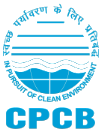your one-stop certification solution!
Battery Waste Management and EPR
To ensure safe and environment-friendly processing of waste batteries in India, the Ministry of Environment, Forests and Climate Change has issued a notification titled “Battery Waste Management Rules, 2022”. The new rules replace the Batteries (Management and Handling) Rules, 2001.

Central Pollution Control Board
Ministry of Environment, Forest and Climate Change
Government of India
Introduction and Scope of the Regulations
Producers, traders, consumers and establishments involved in the collection, segregation, transportation, reprocessing and recycling of waste batteries are covered by these rules. The regulations apply to all types of batteries, regardless of chemistry, shape, volume, weight, material composition and use, including electric vehicle batteries, portable batteries, automotive batteries and industrial batteries.
A central online portal for registration under the Battery Waste Management Rules will be available. It will also allow a mechanism for the exchange of EPR (Extended Producer Responsibility) certificates between producers and recyclers/reprocessors to meet producers’ obligations.
The new rules impose a minimum percentage for the recovery of materials from spent batteries and also require the use of a certain number of recycled materials in the production of new batteries. These battery rules will undoubtedly ensure that the Indian government’s vision of promoting a circular economy is fully realised, with EPR mandatory for all stakeholders.
The Central Pollution Control Board (CPCB) in India levies an environmental compensation on manufacturers who fail to meet their Extended Producer Responsibility targets, responsibilities and obligations set out in these rules.
EPR (Extended Producer Responsibility)
Extended producer responsibility means that each producer of electrical and electronic devices is responsible for the channeling of e-waste to ensure environment-friendly management of this waste. Extended producer responsibility may include the introduction of a take-back system, the establishment of take-back points or the agreement with authorized dismantling companies or recycling companies.
The manufacturer can take action here individually or together with producer responsibility organizations.
EPR Portal for E-Waste Management
In India, there is an EPR portal for e-waste (Portal for Grant of EPR Authorization and PRO Registration Under E-Waste (Management) Rules).
Extended Producer Responsibility (EPR) of manufacturers is governed by the issuance of an EPR permit. For issuance of an EPR permit, manufacturers defined below must submit Form 1 of the above regulations to the CPCB (Central Pollution Control Board). This online e-waste management system is an online portal through which applicant producers can apply for an EPR permit online. This module is an EPR application module that is limited to the online application submission and the issuing of the EPR permit. All parties involved such as manufacturers, PROs, dismantlers, recyclers and reprocessors must register in this system. Transporters and take-back points/centres are included in this system by manufacturers, PROs, dismantlers, recyclers and reprocessors.
Who counts as a manufacturer?
A central online portal of the Central Pollution Control Board (CPCB) is available for registration. Apart from batteries, e-wastes are also to be registered on the portal.
Besides adding 85 new EEE products, the portal has also been revised to comply with the new SOP for e-waste management. It will also allow a mechanism for the exchange of EPR (Extended Producer Responsibility) certificates between producers and recyclers/reprocessors to meet producer obligations. All stakeholders including recyclers, importers, producers and manufacturers will have to register through the online portal to obtain the Extended Producer Responsibility (EPR) certificate from the Central Pollution Control Board (CPCB).
In this regard, please note the following points:
- More than 85 new product categories have been added to the e-waste regulations covering a wide range of consumer, household, laboratory, telecom, medical and industrial equipment.
- The interim relief will be extended till 30 June 2023 for clearance of imported consignments of notified EEE without mandatory EPR certificates on the basis of submission of the undertaking released by the CPCB.
- After 30 June 2023, clearance of consignments will only be on presentation of the EPR certificate issued by the CPCB.
Contact us if you need technical assistance to obtain an EPR certificate for the category that applies to you, including meeting recycling targets through authorized recycling agencies.
See the following link for related information on E-Mobility in India and the relevant licensing requirements.
Your One-Stop Certification Solution.
Our complete package for product certifications for India.
Personal contact for all questions on the subject of Battery Waste Management
Application preparation
Communication with CPCB (Central Pollution Control Board))
Provision of a local representative in India
Preparation and support of the Battery Waste Management registration process
Contact us!
MPR India Certification – expert consulting and implementation of certification projects worldwide.






